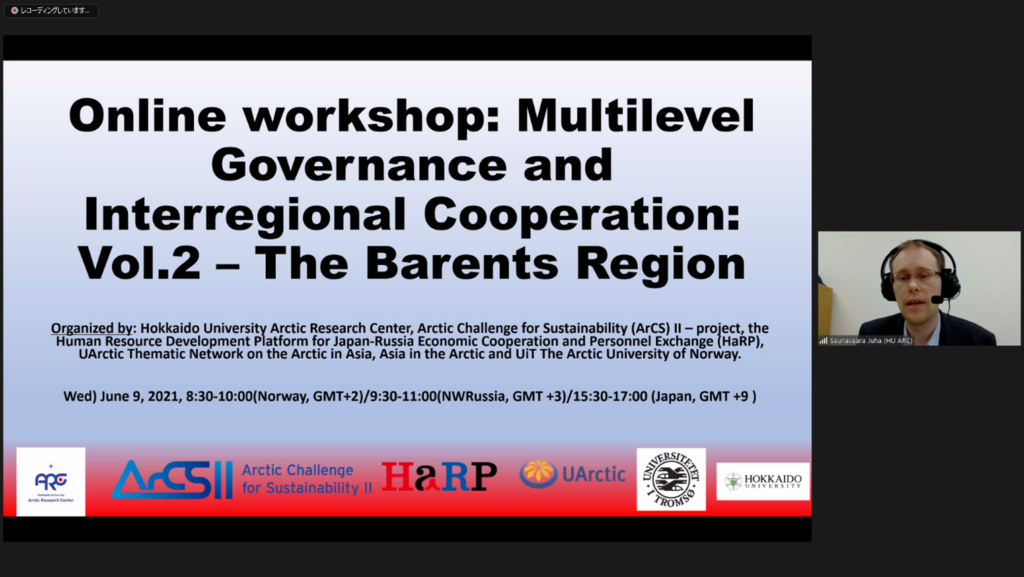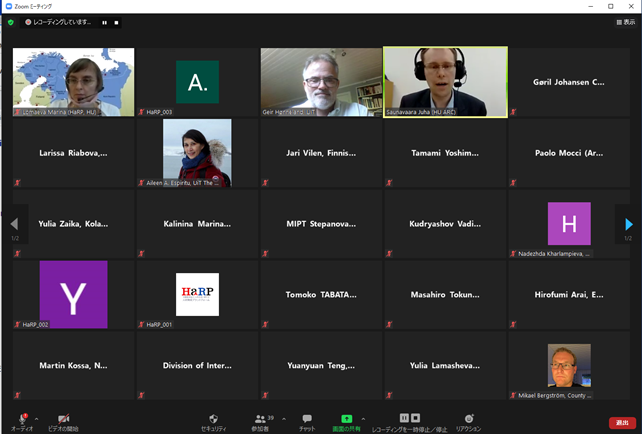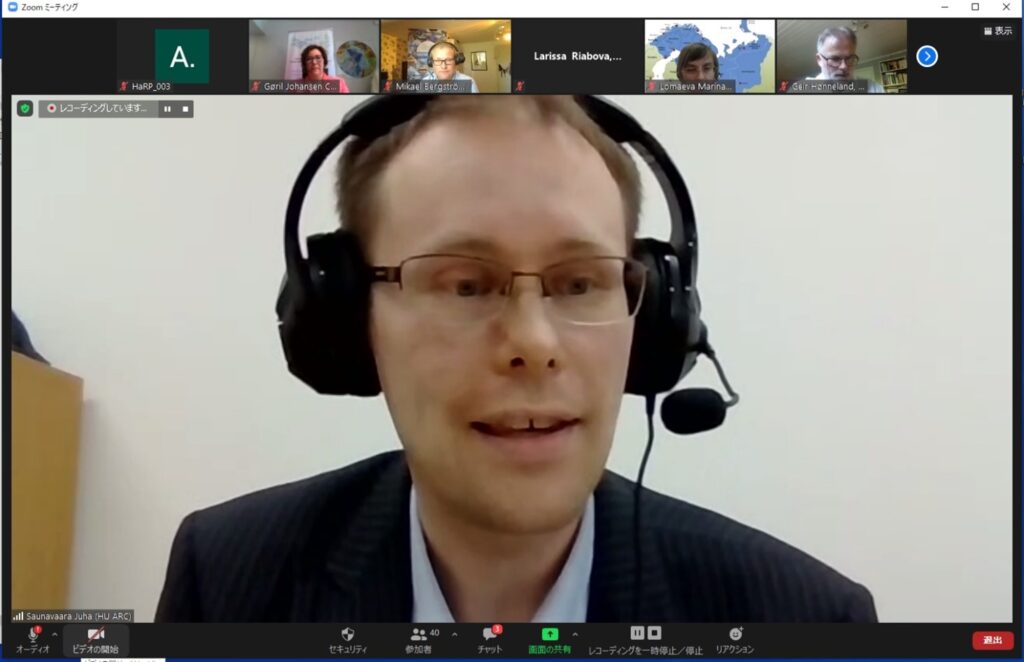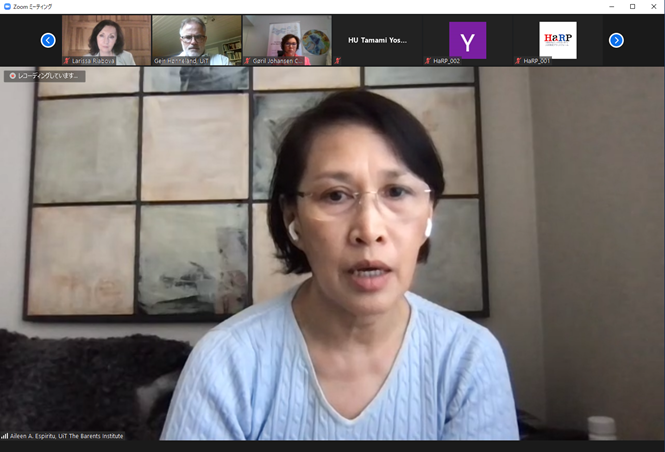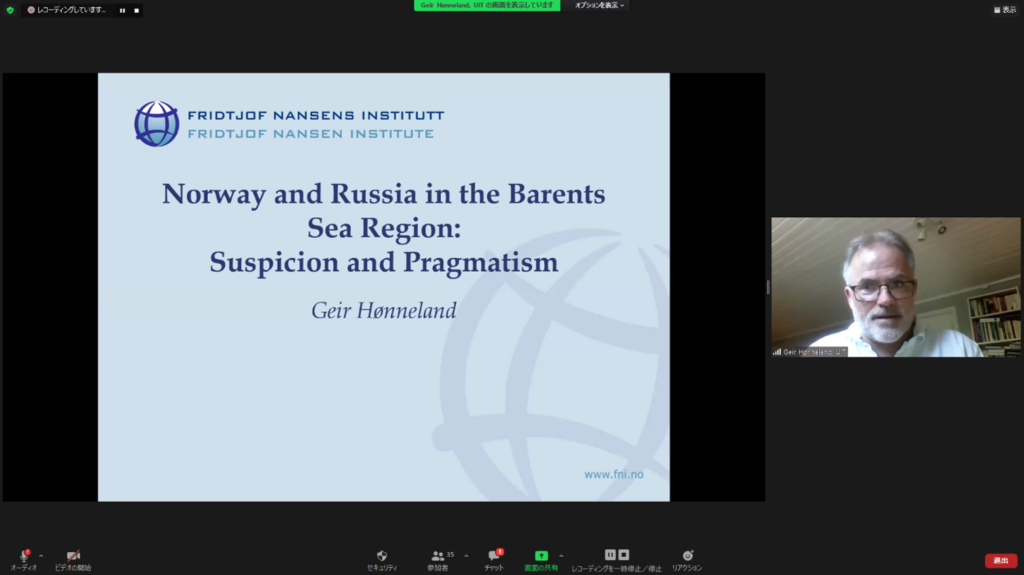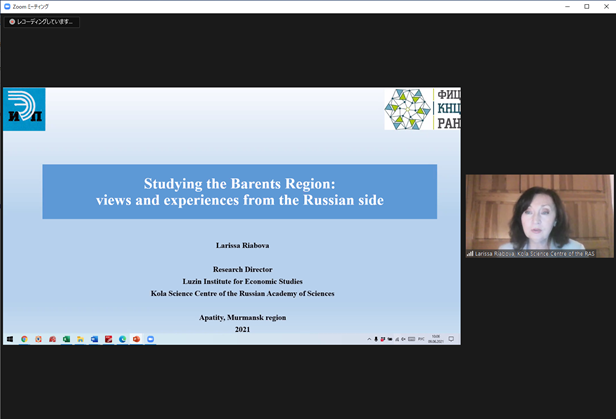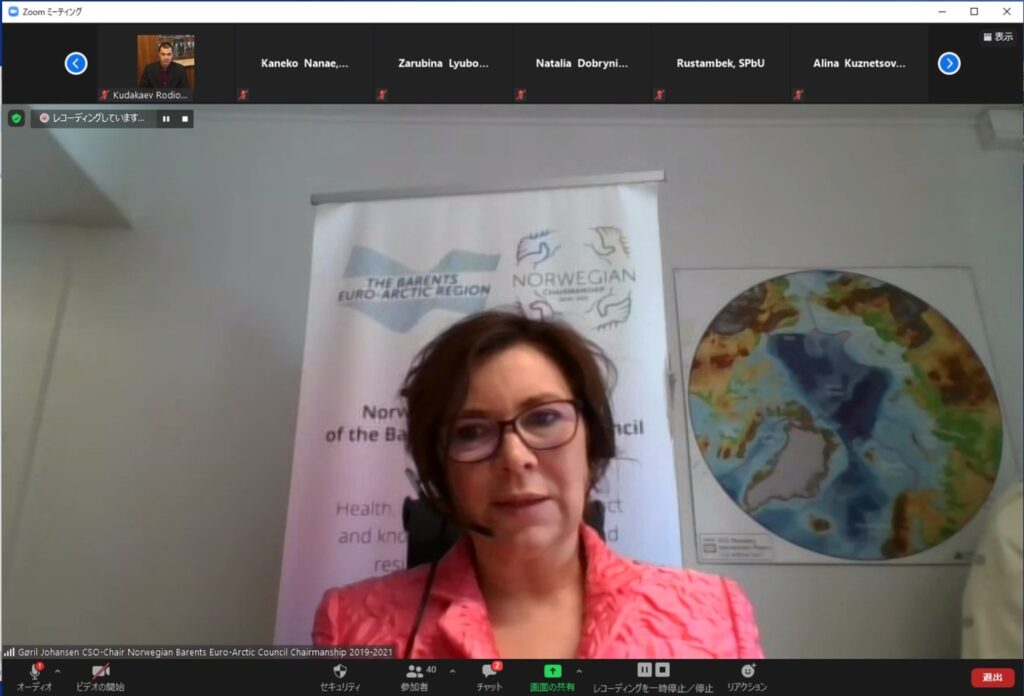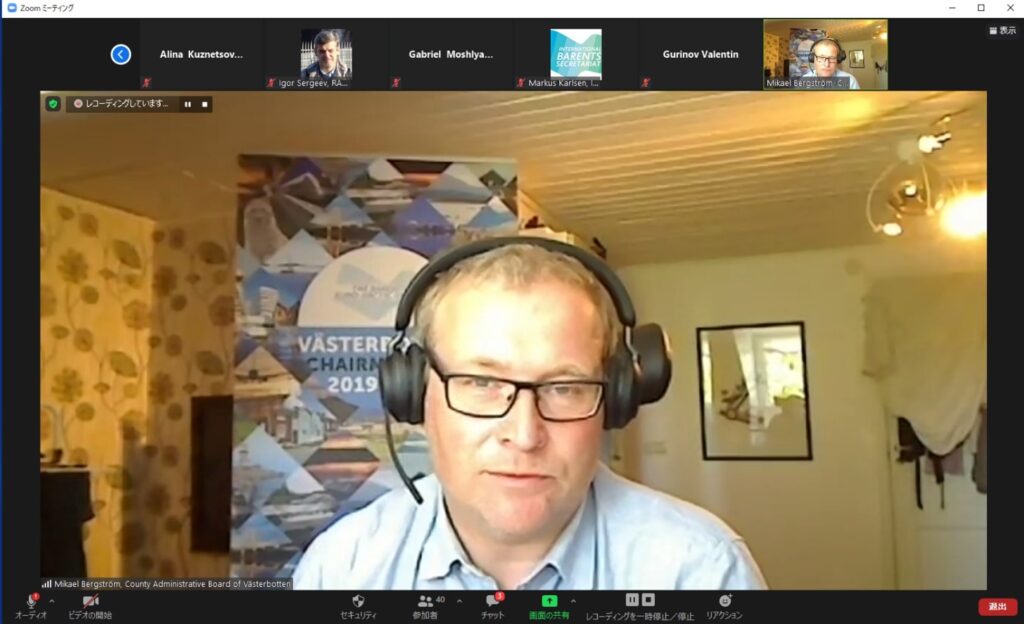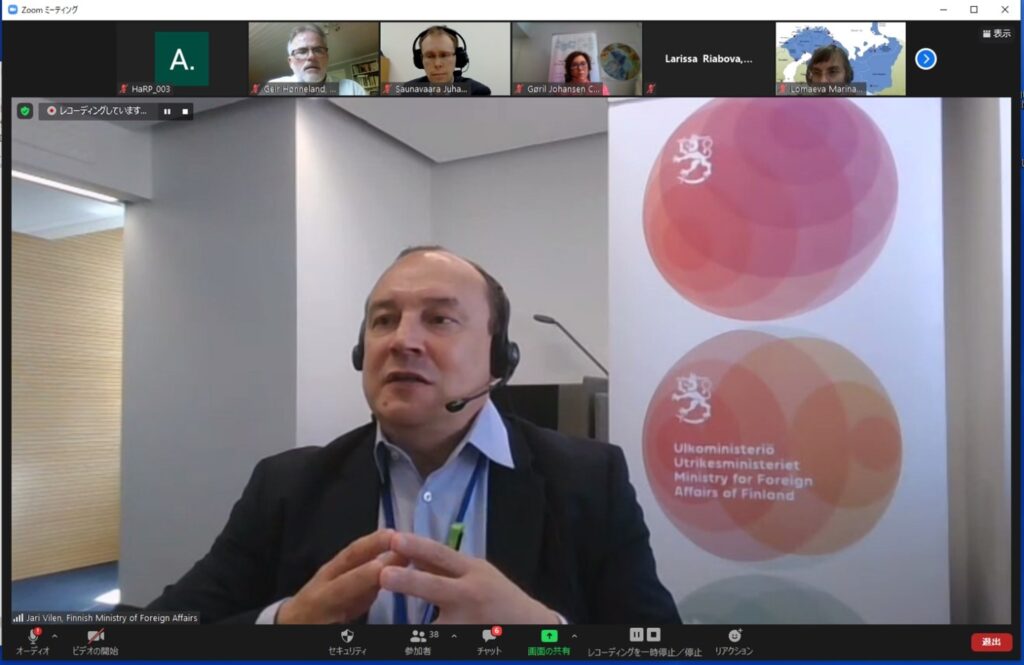On June 9, 2021 the online workshop “Multilevel Governance and Interregional Cooperation: Vol.2 – The Barents Region” was organized as a cooperative effort involving Hokkaido University Arctic Research Center, Human Resource Development Platform for Japan-Russia Economic Cooperation and Personnel Exchange (HaRP, in particular, the specialized section “SDGs: Environment, Resource Development and Multicultural Education”), the Arctic Challenge for Sustainability (ArCS) II – project (especially research program “Elucidating the Complex Dynamics of Arctic Politics and Its Contribution to Japan’s Arctic Policy” and its subgroup 4 “Non-state actors and paradiplomacy”), the UArctic Thematic Network on the Arctic in Asia, Asia in the Arctic and UiT The Arctic University of Norway.
Its objectives were to:
- analyze the present condition and the future prospects of the Barents cooperation
- discuss the relationship between the Arctic and Barents cooperation
- review the major challenges and recent success stories of the Barents cooperation
- discuss what other initiatives aiming to foster interregional cooperation (in the context of the Arctic and North) can learn from the Barents cooperation and
- to evaluate whether the Barents cooperation can offer lessons and best practices for regional cooperation in the North East Asia or Asia as a whole.
The workshop was attended by 43 participants (32 from universities, 5 from research institutions, 5 from the government bodies including diplomatic missions and 1 from a private company) from Russia (18), Japan (14), Finland, Norway, Sweden. It was the third event in a co-organized workshop series preceded by:
- Online workshop “Multilevel Governance and Interregional Cooperation: Vol.1 – The Pacific Arctic” held on January 12, 2021;
- Online workshop “Japan-Russia Interregional Cooperation in the Arctic and North – Theory and Practice” held on March 3, 2021
The workshop series building on the results of cooperation and network of contacts established through such events as the Cold Lands seminars / Northern Sustainable Development Forums in 2019–2020 will continue in September 2021.
The workshop consisted of two presentations and two commentary speeches. The speakers and the titles of their presentations were as follows:
- Geir Hønneland (UiT The Arctic University of Norway; The Norwegian Helsinki Committee): “Norway and Russia in the Barents Region: Bilateral and Multilateral Cooperation Structure” and
- Larissa Riabova (Luzin Institute for Economic Studies of the Kola Science Centre): “Studying the Barents Region: views and experiences from the Russian side” )
The commentators were Gøril Johansen Ministry of Foreign Affairs Norway, Chair, the Committee of Senior Officials, and Mikael Bergström, Chair of the Barents Regional Committee.
Following the presentations and commentaries, Ambassador (Barents and Northern Dimension) Jari Vilen from the Finnish Ministry of Foreign Affairs gave his remarks and provided preliminary information concerning the focus areas that Finland will emphasize during its forthcoming chairmanship of the Barents Euro-Arctic Council.
Discussion at the end of the workshop focused on issues and themes such as:
- Russian and Norwegian views concerning the Barents cooperation
- the relationship between the Barents cooperation and Arctic cooperation
- lessons that can be learned from the Barents cooperation and the importance of making the results of the cooperation visible.
This workshop brought together speakers and participants representing various universities, research institutes, different levels of national and sub-national governments and the associated agencies, private companies. Therefore, it will hopefully also contribute to the cross-border networking and trust-building (often described as the major achievements of the Barents cooperation) among the stakeholders involved and interested in the Arctic and northern collaboration.
